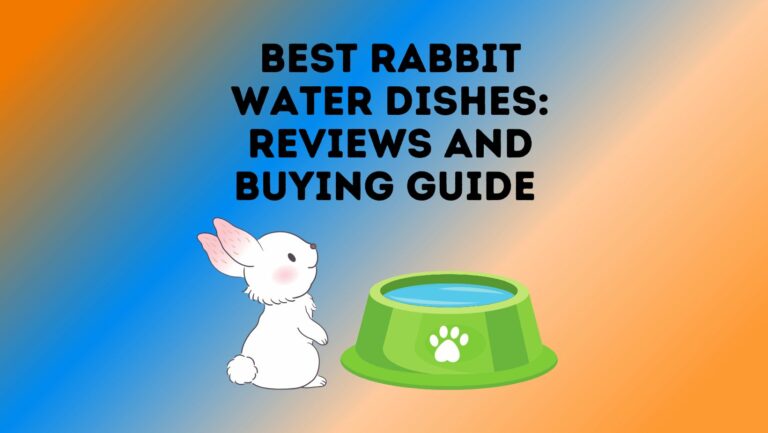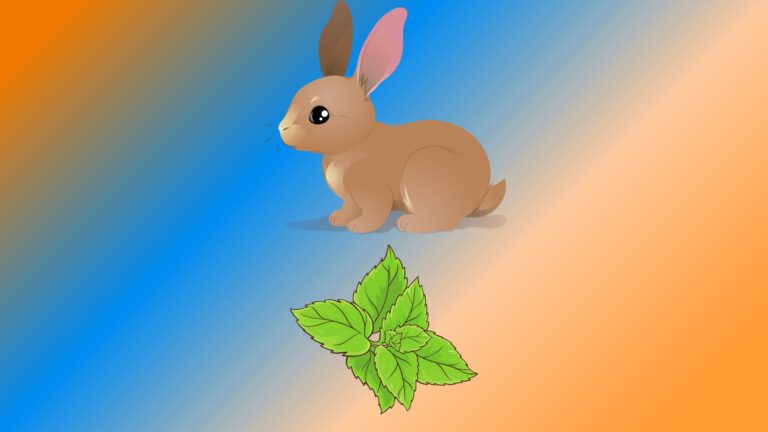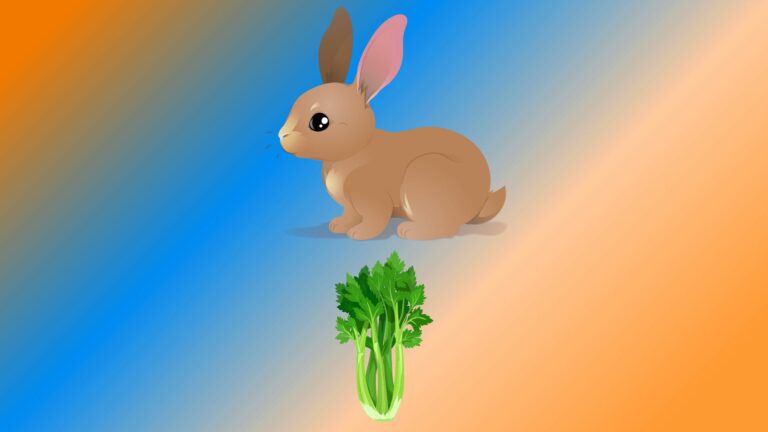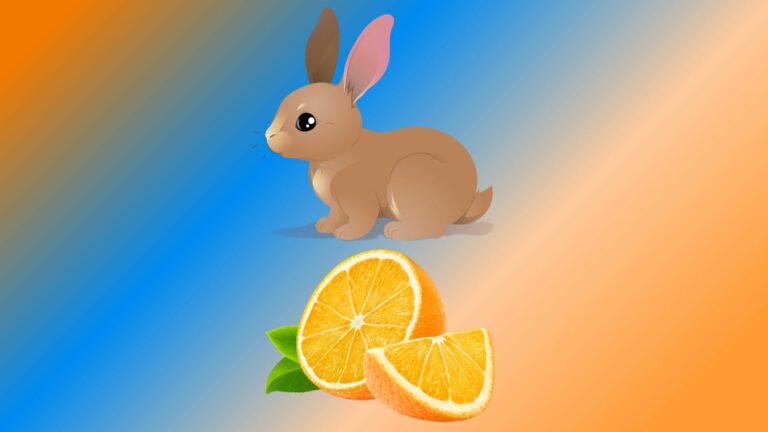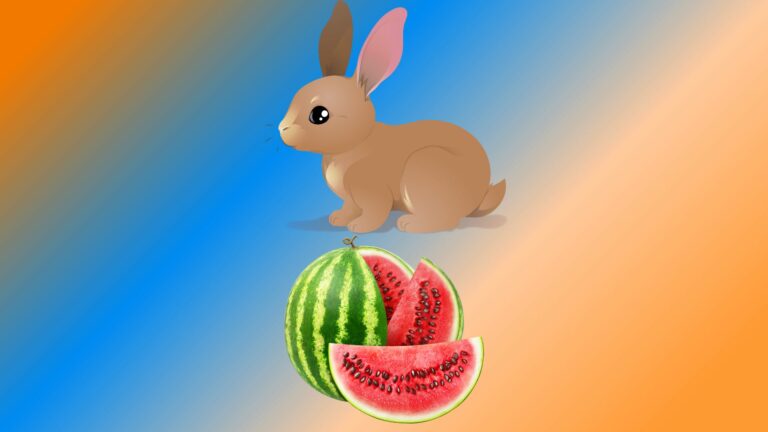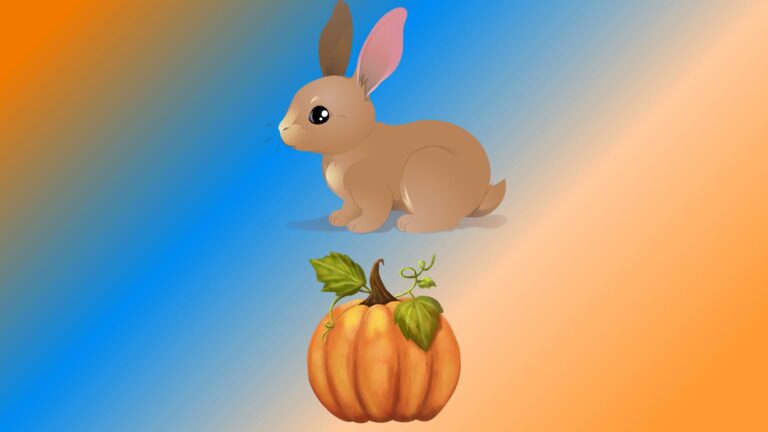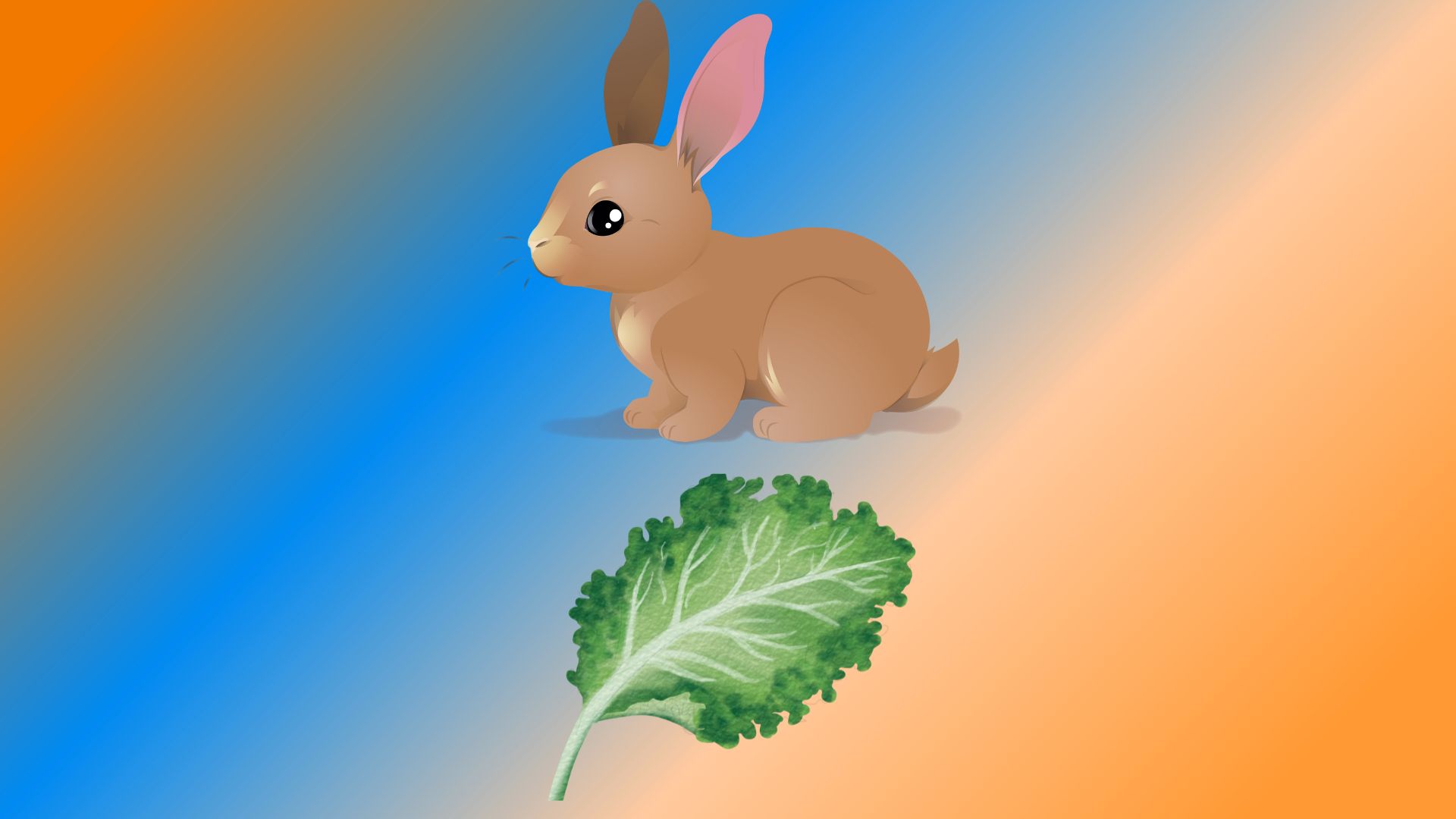
Part of being a responsible pet owner is knowing what you can and cannot feed your pet. In the case of rabbits, which are herbivorous animals, there are specific vegetables that can help keep them healthy. Is kale, also known as leaf cabbage, one of these vegetables? Let’s find out if rabbits can eat kale!
The short answer to this question is most definitely! Kale, also known as leaf cabbage, is one of the most nutritious vegetables available for both humans and herbivorous animals. When eaten in a reasonable amount, kale can provide your pet rabbits with the nutritional value they need.
Not only is kale good for your pet rabbits, but it’s also quite appealing to them in terms of texture and taste. Oh, and we’re not just talking about ordinary kale, but also curly kale, red kale, cavolo nero, and even the stalks or stems of kale. All types of kale are suitable for your pet bunnies!
Even in the wild, you’ll find rabbits nibbling at kale from time to time. However, you should know that kale isn’t a rabbit’s favorite vegetable. Bunnies in the wild are more fond of flowers such as tulips, roses, impatiens, phlox, zinnias, pansies, asters, and more, so kale isn’t their first choice.
Kale may not be your pet rabbit’s first choice in your garden as well, as they’ll likely prefer to eat lettuce, peas, bell pepper, beet greens, broccoli, spinach, celery and so forth. However, there’s no denying the nutritional value of kale and that rabbits are actually quite fond of its taste and texture.
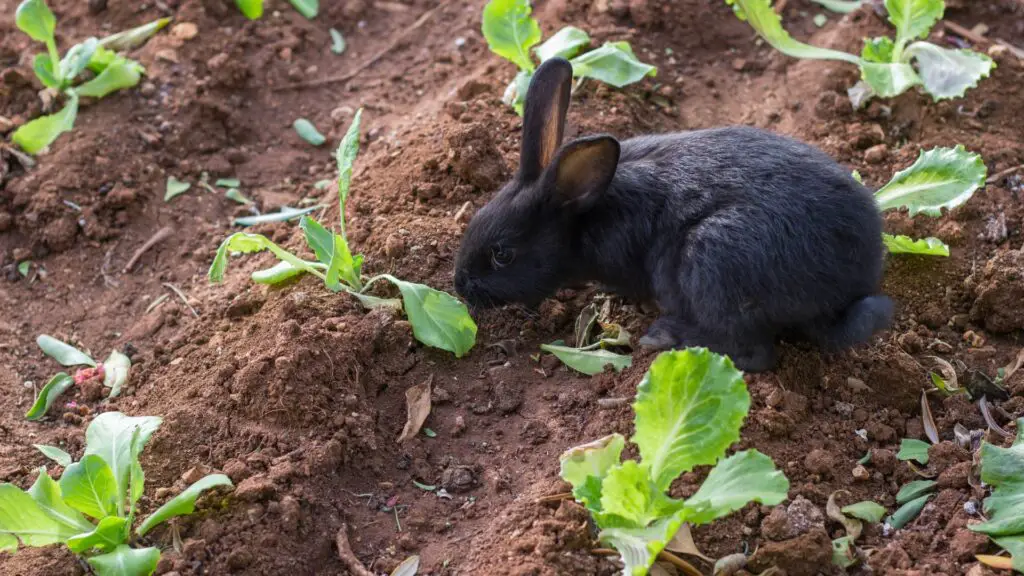
Benefits Of Kale For Rabbits
Kale is a vitamin-rich vegetable, as it contains vitamins like A, B6, C, E, and K. Kale is also rich in folate, manganese, magnesium, thiamine, pantothenic acid, riboflavin, phosphorus, calcium, potassium, iron, and more. With that said, it’s simply unwise not to feed your pet rabbits kale.
Kale is a vegetable that’s very rich in iron, and iron is responsible for carrying oxygen in order to get distributed to the different parts of the body. Iron is also responsible for generating blood and other enzymes. Kale also does a good job of diversifying the rabbit’s diet, ensuring ideal health.
Rabbits are the types of animals that can get very fat without regular exercise, and the excellent thing about kale is that it provides your bunnies with the energy they need to engage in activities and exercise so that they don’t become fat. A very well-rounded food for you rabbits indeed.
Downsides of Kale for Rabbits
We already established that kale is one of the most nutritious vegetables that you can offer your pet bunnies, but does it have any downsides? When not fed in moderation, kale can upset your pet’s stomach. It can also cause gastric, digestive, and kidney problems, if fed excessively. Remember, a rabbit’s diet should mostly be made up of hay or rabbit pellets – fresh veggies can be used in moderation as a supplement.
Problems that kale can result in if not fed in moderation include kidney stones, diarrhea, bladder sludge, or bloating. While such health problems might not be fatal for your pet, they can result in serious health issues and discomfort. But how can such a nutritious food cause such problems?
Well, kale is very rich in calcium, and too much calcium can cause the above-mentioned issues. You should keep in mind that your rabbit’s digestive system doesn’t really allow for the complex metabolization of calcium, so you have to always monitor your pet rabbit’s calcium intake.
Is Kale Good for Baby Rabbits?
Young rabbits can eat the same food that adult rabbits eat, but the thing about young rabbits is that they have a sensitive digestive system, as it’s not totally developed yet, so their nutritional needs will differ from adult rabbits. Simply put, baby rabbits can eat kale, but in small amounts.
Of course, you won’t be feeding baby rabbits kale the moment they’re born, as they’ll drink the mother’s milk for about 6-8 weeks. After that time period, you can begin to introduce solids like kale. You should start with a small amount and then increase the amount as your rabbits age.
How About Frozen or Cooked?
Not all leafy greens can maintain their texture when frozen. Luckily, kale isn’t one of these foods as it can be frozen and still maintain its texture. When it comes to cooking kale, there isn’t any need for it. In fact, cooking kale will make it lose some of its fibers, making it harder to digest.
Feeding Kale to Your Rabbits
The best way to serve kale to your rabbits is to offer them fresh kale. You also want to add two different types of vegetables along with it, all in moderate amounts. You don’t want to limit your rabbit’s diet to just kale, as that will probably result in nutrient imbalances and health problems.
When first introducing kale to your pet rabbits, you want to begin with a small amount in your rabbit feeder. Monitor your rabbits for any signs of diarrhea, soft feces, or gas pain. A cup of kale for every couple of pounds of your rabbit’s weight is a very reasonable amount, mixed with other leafy greens.
You shouldn’t introduce different vegetables to your rabbits in less than three days. To add, it’s vital to limit the serving of vegetables that contain high oxalic content. Always vary the specific leafy greens you introduce to your rabbits, and always make sure you wash them properly.
We want to remind you that you cannot feed rabbits kale on a daily basis. This is because kale contains a great deal of calcium, and too much calcium can upset your rabbit’s stomach. You’ll need to serve kale in moderation in order to avoid the serious health implications it can cause.
Final Thoughts
The bottom line is this: kale is one of the most nutritious vegetables that you can feed your pet bunnies, but it’s essential to serve it in moderation alongside two other types of leafy greens. If you have any questions with regards to today’s topic, please feel free to let us know.

